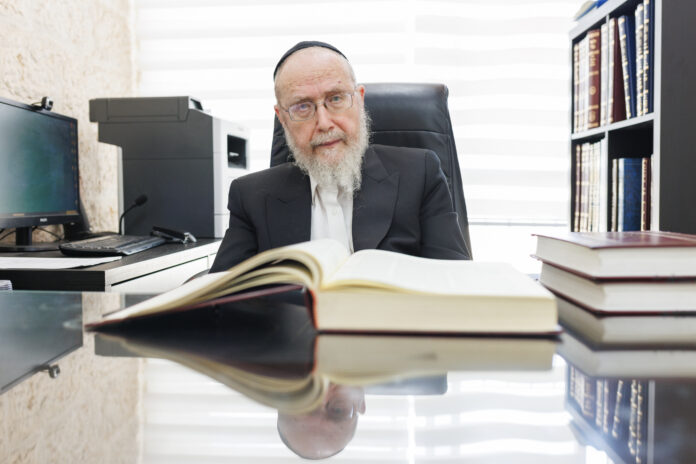There are few topics that elicit as much passion as chinuch. Whether you’re a parent, student, teacher or rebbi, everyone has an opinion, and every problem seems to have a hundred different solutions, depending on whom you ask.
There was a time when boys fell through the cracks, and most yeshivos didn’t have the resources to cater to them. Much of the problem back then was due to the fact that there was very little awareness of learning disabilities. Lack of success was usually blamed on one of two factors: either a lack of motivation on the student’s part, or a lack of capability.
It was against this backdrop that a young rebbi named Yeshayahu Weber began his career and decided to focus on strengthening the weaker students. That is why I find myself today on Rechov Imrei Binah in Yerushalayim; I am interested in finding out about Rabbi Weber’s journey. Rabbi Weber’s area of expertise is determining the reason students fall behind, which is often not due to any disability.
Interestingly, even though I don’t remember it, my father recently told me that I actually met Rabbi Weber many years ago. It seems that when I was 11 years old, I was giving my rebbi a lot of trouble. When he told my father that I seemed to be way behind my peers and suggested that I be evaluated for learning disabilities, it happened to coincide with Rabbi Weber’s visit to Switzerland. (In the end, my entire class went to him to be evaluated.)
The results of my assessment came as a shock to everyone, especially my rebbi. According to Rabbi Weber, the real reason that I and another boy were acting out was that we were actually ahead of the class and were bored by the slow pace of the learning. As it turns out, even Rabbi Weber’s assessments can be wrong, since I can assure readers that I have never struggled due to my incredible genius!
Rabbi Weber stands about five foot seven and has a graying light-brown beard. His apartment is simply but nicely furnished, and he leads me into a small office with a desk and two chairs facing it. “This is my home office,” he explains with a smile. He shows me some of his teaching materials, which he uses to help other pedagogues interested in learning his method of student evaluation. Upon seeing my puzzled expression at a variety of charts and graphs, he promises to explain them at some point in our conversation.
I ask Rabbi Weber to begin by telling me about his background.
“I was born in Yerushalayim in 1947, and my family moved to America shortly after my bar mitzvah. For the first few years I learned in Yeshiva Torah Vodaath, which was located on South 3rd Street in Williamsburg. A few years later, I switched to a Chabad yeshivah, which had been my wish all along.”
A few years later, he went to study in Montreal. After getting married there, he and his wife lived in New York for a brief period before moving to Eretz Yisrael in the 1970s, and they still live in the same apartment where they started out.
When I ask him about his pathway to the field of chinuch, Rabbi Weber takes me back several decades to a time when he was learning in yeshivah, studying for semichah and then learning in kollel.
“I wasn’t sure what my next step would be, but I considered going into chinuch because I’d had some experience tutoring as a bachur, enjoyed it and found it satisfying. Then someone suggested that I go teach in a school in Yerushalayim.”
In those days, there were only a handful of main chadarim, including Eitz Chaim and Chayei Olam. Rabbi Weber soon found employment as a melamed.
“I could immediately tell that this was my mission in life because I got so much satisfaction from it, but I had no idea about things like teaching methodologies and classroom management, along with all the other things you have to know. In between classes I would discuss methods with melamdim, who told me that they sometimes hit the children. ‘That’s the way to deal with students who misbehave!’ was one of the lines I kept hearing. They even compared some students to their fathers, saying, ‘He’s just like his father. There’s nothing we can do to help him. He won’t amount to anything.’ I found this approach appalling and just couldn’t accept it.
“As time passed and I acquired more experience, I realized that while there were all kinds of students, and not everyone could be a metzuyan, there were many capable talmidim who were having difficulty for other reasons that I could not immediately identify.” Rabbi Weber instinctively knew that these students had potential, and he decided to figure out how to unlock it.
Although he speaks in very measured tones, his passion shines through.
To read more, subscribe to Ami





















